How can i make mysql start every time the system boot ? I need that in a dedicated server(ubuntu distro) in which i have my blog, but every time the server goes down, on booting mysql is stopped. Btw i can use only command line.
-
related https://serverfault.com/questions/232046/how-to-automatically-start-mysql-after-server-restart-centos-other-distros – n611x007 Sep 01 '15 at 08:59
9 Answers
update-rc.d allows setting init script links on Ubuntu and Debian Linux systems to control what services are run by init when entering various runlevels. It should be able to add mysql to the list of services to run at boot:
sudo update-rc.d mysql defaults
If you later want to disable running mysql on bootup:
sudo update-rc.d mysql remove
- 957
- 6
- 15
You can do it by using sysv-rc-conf, on debian based you can install it with sudo apt-get install sysv-rc-conf
then you can choose what start at boot with a simple X on the name of the deamon, all via command line

- 7,408
- 11
- 68
- 113
-
2Again not working..I marked X mysql in all the runleves plus S but when rebooting service mysql status says mysql stop/waiting. – vasilakisfil Mar 25 '12 at 10:30
-
5
-
1From Ubuntu 12.10 on, `sysv-rc-conf` is the replacement for `chkconfig` recommended below. It also lets you use commands instead of the ncurses interface, in this case: `sysv-rc-conf mysql on`. – tanius Mar 07 '14 at 18:44
-
And the equivalent for CentOS/RedHat is `ntsysv` (the title of the question suggested Linux systems) – ılǝ Apr 14 '14 at 01:18
-
It works like charm for me on various Ubuntu versions, but doesn't create the symlinks on Debian 7. Interestingly if I quit and restart the program it keeps the "X"-es I've marked, but the daemons don't run because the symlinks in `/etc/rcX.d/` don't get created. – Attila Fulop Nov 20 '14 at 00:15
Run the following command to see your mysql current status:
/sbin/chkconfig mysqld --list
it will return a line such as below:
mysqld 0:off 1:off 2:off 3:off 4:off 5:off 6:off
to make mysql start every time the system boots, type the following:
sudo /sbin/chkconfig mysqld on
Result now from '--list' is:
mysqld 0:off 1:off 2:on 3:on 4:on 5:on 6:off
- 533
- 6
- 13
-
-
1My CentOS server always started mysqld at bootup. But since yesterday it didn't any more. But this solution helped me. Great, thanks! – unlimited101 Dec 15 '14 at 23:53
-
Tried to apply this solution, but when system is rebooted and I check my mysql service status, it says: `MySQL is not running, but PID file exists`. I know this is an old thread but we're running out of options. By the way, `/sbin/chkconfig mysql --list` command output seems to be fair. We've tried all the answers in this page but sadly with no luck. – JorgeGRC Mar 05 '15 at 09:59
-
seems like it doesn't even try to run the script inside `/etc/init.d/` – JorgeGRC Mar 05 '15 at 10:43
No answer helped. Finally chkconfig and update-rc.d did not work with MySQL on my machine.
Solution, I had a file /etc/init/mysql.override which contained
manual
i just deleted that file
$ sudo rm /etc/init/mysql.override
- 2,321
- 26
- 33
- 251
- 2
- 6
I had the same problem, so I checked how I disabled it in the first place:
https://askubuntu.com/questions/138487/how-to-keep-apache-and-mysql-from-starting-automatically
Check your /etc/init/mysql.conf to make sure you don't have start on commented out (like I did).
# MySQL Service
description "MySQL Server"
author "Mario Limonciello <superm1@ubuntu.com>"
start on runlevel [2345]
stop on starting rc RUNLEVEL=[016]
...
Rebooted the machine and it works.
$ sudo service mysql status
mysql start/running, process 972
Deleting /etc/init/mysql.override did the job in my case (HostEurope VPS with Ubuntu 12.04)
- 121
- 4
Another place to look for clues as to what is and isn't starting at boot time...
/etc/init.d/.depend.start (and its buddy at shutdown time, .depend.stop)
Here's a little more info http://www.pyenet.co.nz/2-202-1-customising-system-startup-and-boot-processes/
I had 2 servers - after booting, 1 would have mysql running, the other not so much.
On the box where mysql was starting at boot time:
- chkconfig wasn't even installed
- there were zero links from any scripts in /etc/rc?.d/* back to /etc/init.d/mysql
BUT... /etc/init.d/.depend.start contained:
TARGETS = halt apache2 umountfs umountnfs.sh sendsigs networking umountroot reboot killprocs unattended-upgrades urandom mysql mdadm dns-clean landscape-client pppd-dns sysstat rsync sudo postfix single grub-common ondemand rc.local INTERACTIVE = apache2 postfix: mysql single: killprocs dns-clean pppd-dns grub-common: apache2 unattended-upgrades postfix mysql mdadm dns-clean landscape-client pppd-dns sysstat rsync sudo ondemand: apache2 unattended-upgrades postfix mysql mdadm dns-clean landscape-client pppd-dns sysstat rsync sudo rc.local: apache2 unattended-upgrades postfix mysql mdadm dns-clean landscape-client pppd-dns sysstat rsync sudo
When I simply copied this file over to the problem server, and rebooted, mysql was up & running.
- 19
- 1
Use the chkconfig command as per the manpage http://manpages.ubuntu.com/manpages/maverick/man8/chkconfig.8.html
- 18,033
- 4
- 56
- 56
With Debian 9, I installed MySQL today and typed "reboot" and mysqld restarted automatically. Also rebooted from my VPS dashboard, mysqld restarted automatically. In short, if you have Debian 9, there's nothing extra to do, it just works.
- 3,615
- 40
- 37